SERVICES
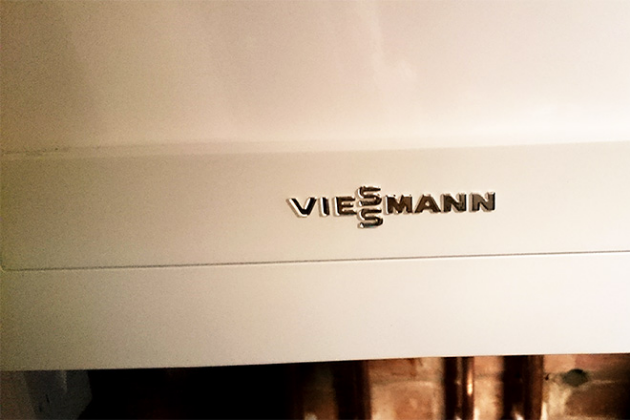
GAS APPLIANCES
Boiler Installs
Approved installer of ATAG, Viessmann & Vaillant boilers, all manufacturers of high quality efficient gas boilers that comply with BoilerPlus, with their own smart controls and weather compensation.
Boiler Repairs
London GAS are experts in gas boiler repairs and fault finding. We can usually obtain spares parts next day.
Boiler Servicing
An annual boiler service is highly recommended to ensure that your boiler is operating safely and efficiently.
Neglected boilers lead to costly breakdowns, higher energy bills and can void the manufacturer warranty.
To book a boiler service, call or visit our contact page.
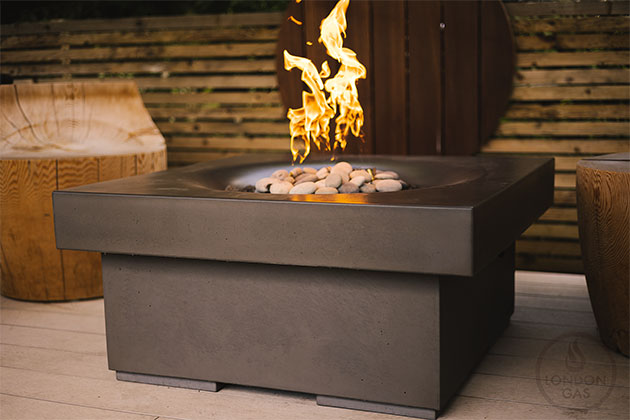
LPG & Leisure
We install, service and repair all domestic LPG appliances, incl. boilers, hobs, cookers, hot water heaters, fires, BBQ’s & firepits.
We can convert from Natural Gas to LPG – and vice versa.
Leisure Appliances
London LPG Engineer
LPG (Liquid Petroleum Gas) includes Propane (patio gas) and Butane.
They come in various cylinder sizes, depending on the size of the appliance.We will calculate the required pipe size, regulator and cylinder size to match the demand of your LPG appliance(s).
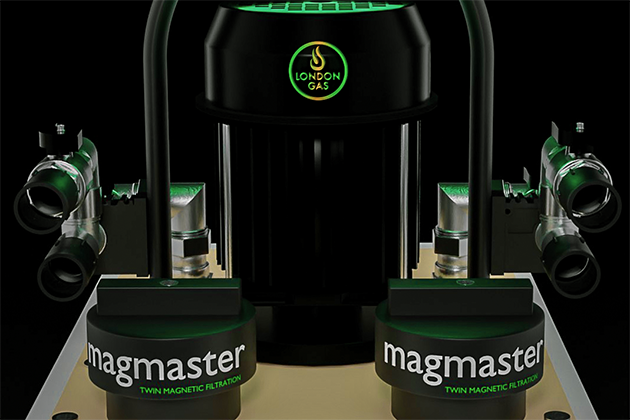
Power Flushing
Power flushing is an essential element to energy and heating system efficiency.
It’s often mandatory for new installs, else it voids the boiler warranty.
I like to use the analogy of buying a new car and reusing the engine oil from the old car to save a few pennies.
It makes no sense.
The Norstom Proflush has its own integral pump, so even if the existing boiler isn’t working, I can still power-flush the system.
Additionally Norstrom Proflush has reverse flow, which helps to remove magnetite along with two powerful magnets to capture the magnetite from the system.
Chemical use to clean a heating system is normal, Norstrom ‘Long Life 410’ is designed to work with cold water.
Water Quality Testing
It’s vital that water quality in a central heating system is monitored and maintained. Most boiler and heating system breakdowns stem from bad water quality.
Water contains oxygen, the enemy of any heating system, it corrodes radiators and some internal part of the boiler, creating magnetite.
The first signs of corrosion that present in a boiler is a leaking AAV and/or a failed expansion vessel.
BS 7593 has been around for a number of years – updated in 2022 to come under Part L.
Meaning it will be mandatory to test system water annually to monitor inhibitor and PH levels, and a full water quality test every 5 years.
Most boiler manufacturers will invalidate the warranty if your water quality isn’t up to standard. They insist a power flush is carried out prior to a new boiler install, along with a magnetic filter being installed. Viessmann does not recommend inhibitor in their boilers, they prefer VDI2035 – which is demineralised water.
LondonGAS has always been an advocate of water testing & filling with demineralised water to VDI2025.
I’ve made a video about water quality testing, which you can watch here.
Don’t forget to give it a like!
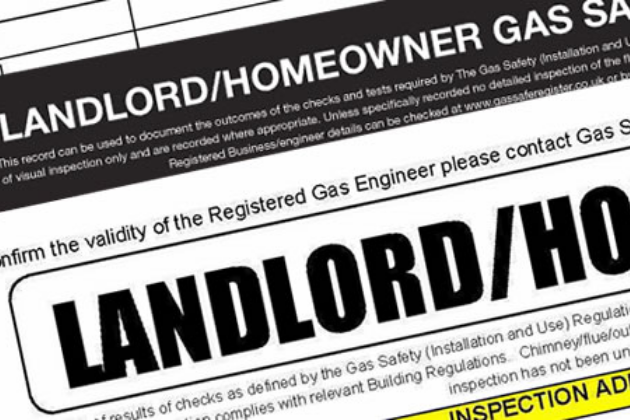
Landlord Gas Safety Record
A landlord is legally required to provide their tenant with a landlord gas safety certificate annually.
If you have anyone working on a gas appliance in your home, they must to be on the Gas Safe Register
If they are not, then they are working illegally.
London GAS are fully insured with two million pound public liability insurance.
All work guaranteed.
Gas Safe Registered
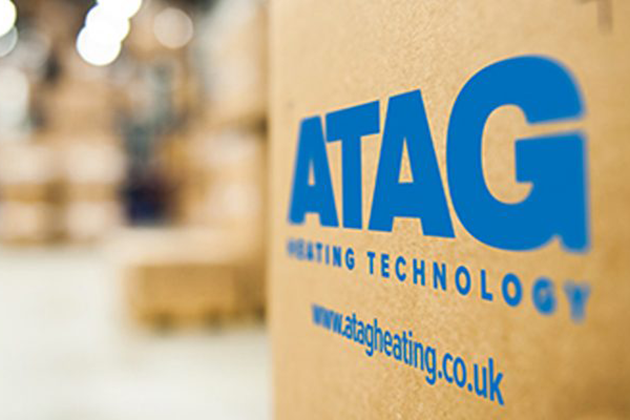
ATAG
ATAG are a Dutch firm, they’ve been operating in the UK for decades in the Commercial sector, more recently delved into Domestic.
They’re an award winning boiler manufacturer at the forefront of technological advancement in efficiency.
Their Economiser range incorporates passive heat reclamation which is one part of #BoilerPlus.
Rather than release this energy as waste, they’ve engineered the Economiser, an environmentally friendly innovation that recycles the flue gases for a second time, resulting in optimum energy efficiency.
ATAG offers one of the best warranties available, a full Lifetime warranty on their Heat Exchanger and standard 10 year parts and labour warranty on the boiler itself.
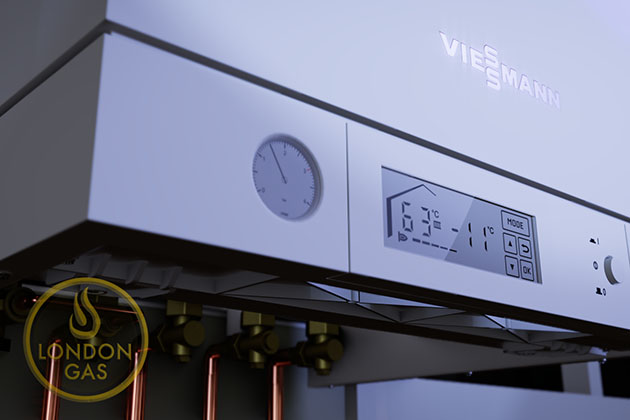
Viessmann
Viessmann are a German manufacturer, with a very good reputation for quality.
London GAS has attended Viessmann training courses, so can offer extended warranties as well as specific product knowledge.
The standard boiler warranty is 5 to 7 years from the date of installation, with an option to increase to 10-12 years (chargeable) if the boiler is registered by a Viessmann approved Installer.
They offer a 10 year warranty on the heat exchanger.
Viessmann have some of the best smart controls, including weather compensation.
Viessmann range are amongst the best for modulating, the 200-W has the best range rating capability of any gas boiler, 1:17.
Their system boilers are PDHW (Priority Direct Hot Water) and support chemical free water, preferring VDi2035 over inhibitors.
Gas Fire Pits
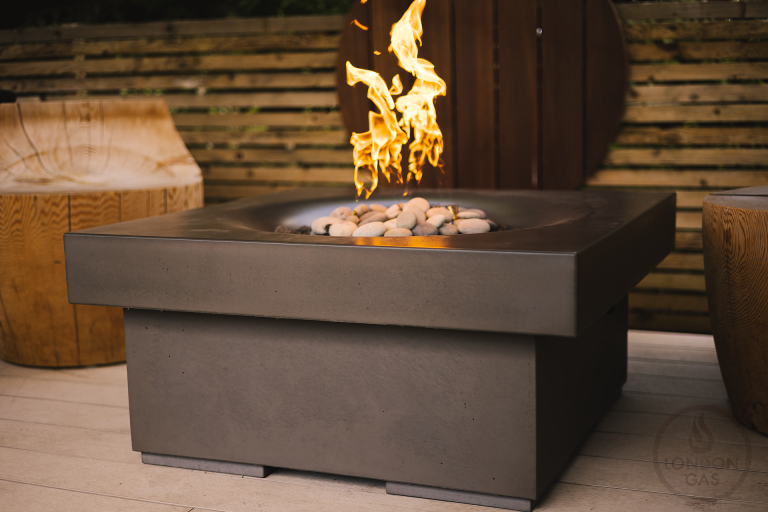
LondonGAS specialise in installation and repair of Gas Fire Pits – also known as Fire Tables and Fire Bowls.
To legally work with any garden gas appliances, the installer must hold the “Leisure” ACS qualification, as well as being on the gas safe register.
Fire pits can be Natural Gas or LPG (Propane) – LPG is the more common option.
The installer must also hold the LPG qualification if the appliance is Propane or Butane, in addition to Leisure.
Things to consider when choosing which gas type.
With Natural Gas, I must take into account every other gas appliance on the system, the boiler, hob, cooker, fires, and add up all the kW ratings to ensure the system can accommodate the new Fire Pit, without depriving gas from any of the other appliances.
I also have to ensure the gas meter is large enough to be able to deliver the required quantity of gas to the new Fire Pit, as well as the other appliances at the same time, with everything on maximum.
Often this would involve a site survey.
A quick example.
Say you have a U6 /G4 gas meter, (a standard gas meter for most average size dwellings), it can deliver roughly 64kW.
In your home you have a 24kW boiler and a 7kW gas hob.
Total 31kW.
64kW minus 31kW leaves approx 33kW spare.
The Solus Hemi has a 20kW burner, so on paper, the gas meter does have capacity to add the new appliance to the system.
The only remaining variable is the pipe size… are the existing gas pipes big enough to take the new appliance?
This will be dictated by the length of pipe from the property to the Fire Pit, and what else is connected to it. Most of the time I’ll take a supply from as close to the gas meter as possible to the Fire Pit.
Solus also make a Fire Table which is 31kW.
For 31kW I would need to use a 47Kg cylinder, which is large, heavy and awkward to manouver.
I prefer to link two 13Kg (or two 19Kg) cylinders together, in effect making one 26kW cylinder.
Even for single cylinder installs.
The only thing you as the client need to arrange in advance of my visit is the gas cylinder.
You initially purchase the cylinder from somewhere like Calor or LondonGases.co.uk and setup an account with them.
Once your cylinder is empty, they’ll exchange the empty cylinder for a full one, you only pay for the gas.
I supply everything else, the regulator, wall block, braided pig-tails, tracpipe & fittings.
There are minimum distances for the cylinder(s) from doors, openable windows, cellar entrances, air vents and untapped drains.
I’ve included a handy graphic below that shows the minimum required distances.
I’m often asked “how long does a cylinder last”?
Well, that depends on how often and how long you use the Fire Pit and what cylinder size and the kW rating of the appliance.
There is a calculation, but for brevity, a 19Kg cylinder with a 20kW burner on full, will last 13.3 hours.
Obviously it’ll last longer if you turn down the flame from full to half power.
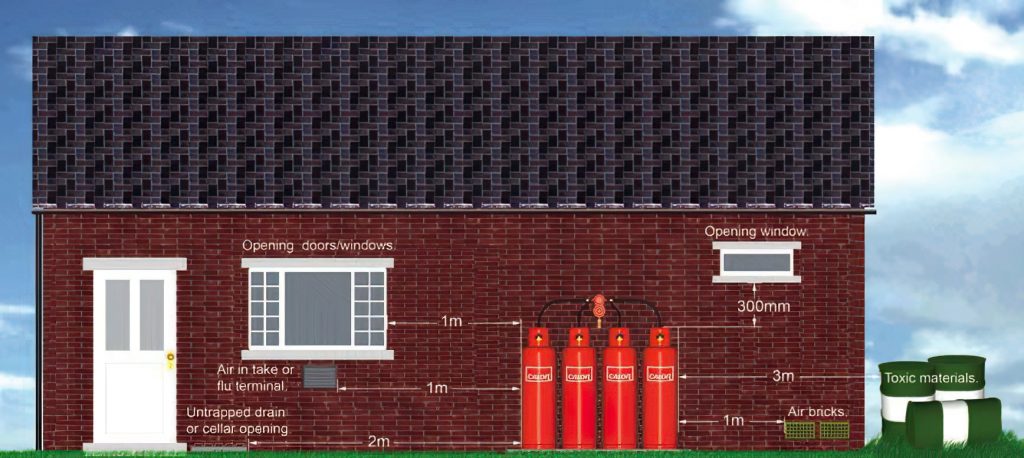
What’s the difference between a gas safety check and a boiler service?
When it comes to having a gas boiler inspected, you may be confused about whether you need to book in a gas safety check or a service.
The two things are quite different, so read on to find out what each involves, as well as which one you might need.
Gas safety check
A gas safety check isn’t just specific to boilers, but relates to any gas appliances and the gas system as a whole, including pipework.
It doesn’t involve the inspection of specific parts. Instead, it ensures that everything is running as it should be.
This would include checking:
- The boiler pressure
- The air supply/adequate ventilation
- That gas is being burned correctly and efficiently
- Flues and chimneys to ensure the flue gases can escape
- Safety devices
Carbon monoxide is colourless and odourless, meaning it can only be detected using carbon monoxide alarms.
These devices should be placed near any gas appliances so that you can be made aware of a potential leak.
The ‘safety check’ can let you know that your boiler is safe to operate whilst ‘a service’ will ensure efficient running.
The safety check will also establish that any cut-off devices, such as safety valves, are working. These devices ensure that if there is a problem with your boiler, the gas supply to the boiler will be shut off to keep you and your household safe.
A gas safety check must be carried out by a Gas Safe registered engineer.
You can ask for their ID beforehand to ensure they have the right qualifications and accreditations or visit the Gas Safe Register and click on Check An Engineer section.
It’s particularly important that landlords keep up to date with gas safety checks in their properties, otherwise they could be neglecting their responsibilities under the Landlord and Tenant Act 1954.
Boiler service
The gas safety check ensures that the appliance is running safely, the boiler service involves checking boiler components to make sure they’re clean and working efficiently.
You could think of a ‘boiler service’ and a ‘safety check’ as the equivalent of a ‘service’ and ‘MOT’ on your vehicle. The MOT checks that it’s safe to drive on the road while the service checks individual parts and involves changing fluids such as oil and topping up the radiator fluid.
Your boiler will need its first service 12 months after the installation date and every 12 months thereafter.
Servicing isn’t a legal requirement, however it’s often a requirement to maintain your manufacturer warranty valid and will keep your boiler working efficiently, saving you money on your energy bills.
A service involves taking off the front cover of the boiler, inspecting, testing and cleaning the parts inside. The heating engineer check there are no leaks in any of the pipework and that all of the seals are intact. As with a boiler safety check, the working gas pressure will be checked and the flue will be examined for safety.
As a boiler burns gas, dirt/soot is deposited on certain parts, such as the burner and heat exchanger.
Over time, these deposits can affect the efficiency of your boiler and may even prevent it from lighting altogether.
Finally, the expansion vessel will be tested to ensure the correct pressure to allow expansion of the system water when heated.
Once complete, they should make a note of the service details in the manufacturer’s benchmark book.
Which one do I need?
It’s important that your boiler has either an annual service or safety check. As manufacturers state that it is important to have an annual service to maintain your warranty.
To save time, a safety check can be completed on other appliances along with the service on your gas boiler by a Gas Safe registered engineer.
They will then advise if other appliances also require a service.
The laws are slightly different for landlords, who have to look after their tenants by ensuring all properties contain safe gas appliances. This means that as a landlord, you must legally have a gas safety check on all gas appliances every year.
You don’t have to have the boiler serviced, however the landlord may still need a service to maintain manufacturer warranty.